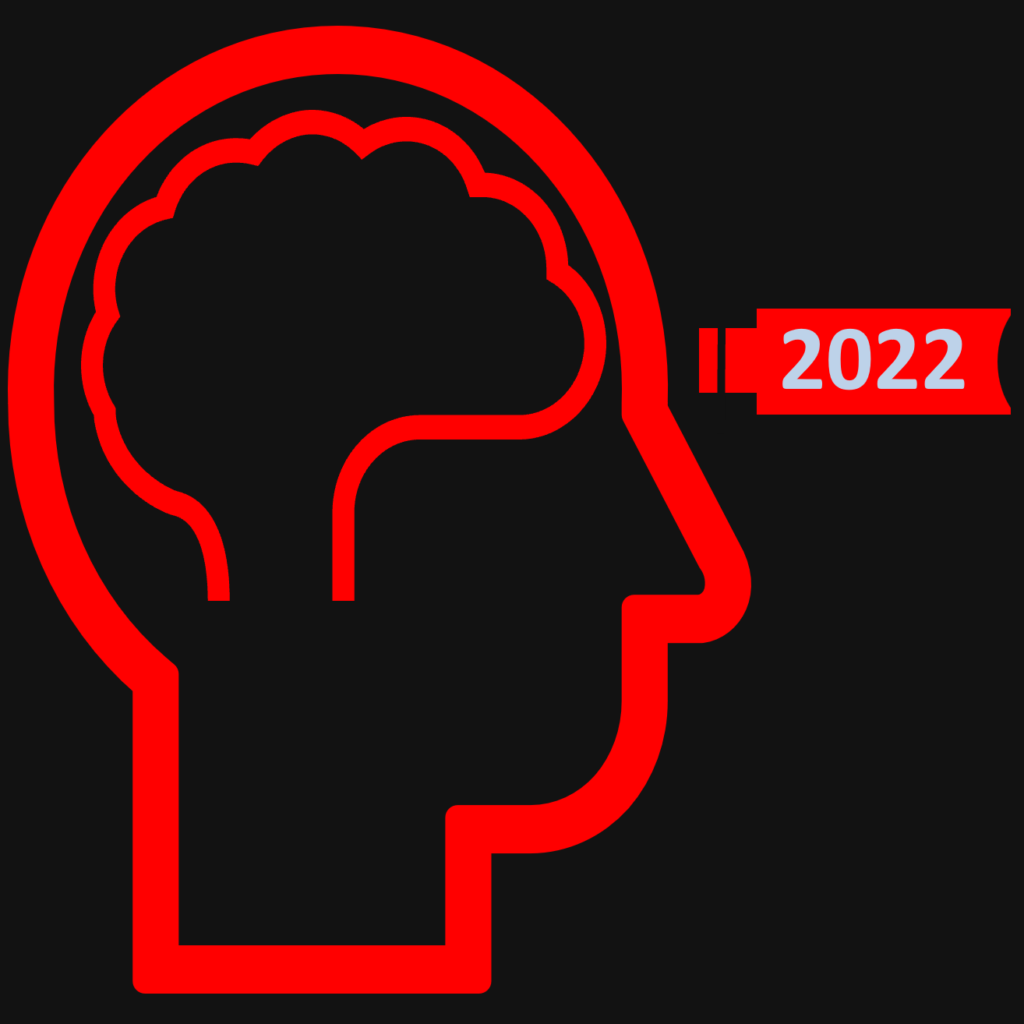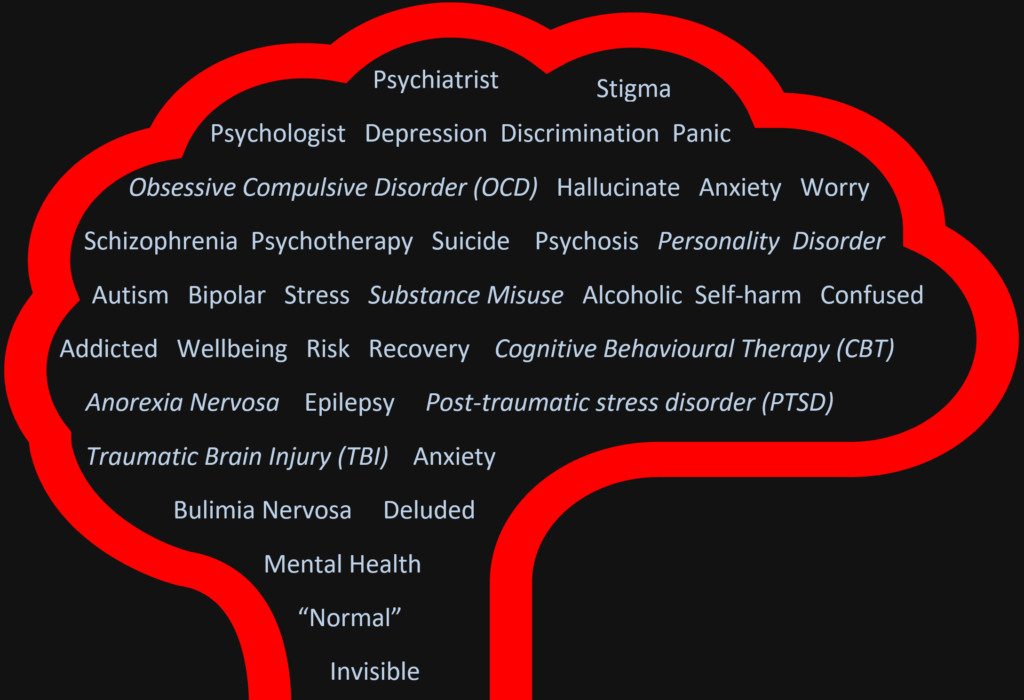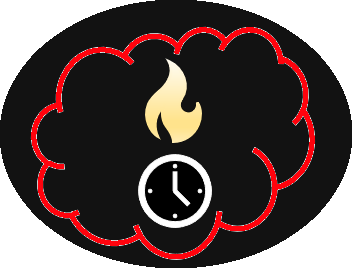What’s in your head? Your future? (January 2022)

We use past to make sense of our present and build hopes for our future. Emotion can distort hope, despite reason. Mental Health (MH) influences our emotional response to events, how we interpret our lives, and how we cope with change. Timely use of reason, and support, is required to prepare, pre crisis, for a better future.
Big changes in my own life affect my capacity unimaginably. Recovery from physical and emotional damage is an ongoing requirement. I can live better, even if I can’t get better.
“Health is a state of complete physical, mental and social well-being and not merely the absence of disease or infirmity.” World Health Organisation (WHO)
Pre accident my understanding of Mental Health was flawed. In Truth, Mental Health is always about:
- somebody else. ❌
- the minority not the majority. ❌
- weak valueless people who should pull themselves together. ❌
- easy to grasp solutions. ❌
- single disconnected symptoms. ❌
- the past, because you can always get better. ❌
- issues best ignored. ❌
I believe this thinking is unhelpful, dangerous and wrong. Flawed thinking influences our actions.
A third of people assume those with MH issues are likely to be violent but it is more likely that those with MH will be subject to the violence of others.
Stigma and discrimination remain powerful, despite protected characteristics within the Equalities Act 2010.
My understanding of brain function has developed. I have, for some time, been aware of cognitive function through conscious awareness of a trained, managed and nurtured process of thinking. I also knew the brain controlled complex body functions subconsciously.
Following Traumatic Brain Injury, relating symptoms to fault location has been diagnostically complex for me. I’ve been subject to many, MOT type, medical tests.
Secondary school Biology made me aware of more instantaneous subconscious reactions learned through nature evolutionarily to provoke life saving Fight, Flight, Freeze responses. Information can be shared generationally; genetically and/or thoughtfully.
Accident experience, revised motivation, and greater reading time has broadened my awareness beyond Mental Health for Self. MH should be understood and manged better by all. You don’t need a life changing event.
Stress, is part of life. Is stress always bad? Does stress help alert better performance? Is stress actually essential? Complex MH vocabulary is extensive, hard to define, confusing and often used interrelatedly. It’s complex, because we are.

Statistics.
Big numbers can numb societal response to individual pain. Covid Pandemic data has been overwhelming. Post election, it can seem that our challenges only become political priorities when the big numbers relate more to money than people.
MH is about everyone irrespective of wealth or status. The numbers could not be bigger. So big they are often approximated summatively.
Pre diagnosis, MH challenges can be invisible and unrecorded. Declaring personal MH issues can provoke responses that cause sufferers additional problems. That, ‘I’ll keep quiet’ approach is becoming less necessary, as MH becomes more newsworthy and mainstream.
I’ve tried to source some statistical exemplification of the importance of MH.
One in four people have MH issues each year. One in six people of working age have symptoms associated with MH… 75% of MH illness starts before the age of 18. (CMO Report 2014) During puberty, an imbalance of chemicals in the brain can be MH problematic.
I’ve mentioned my own suicidal thoughts before. I’ve moved from, “at risk” to “recovery.” In the UK in 2018, 16 people died this way per day. This is 3.4 times the number killed in road accidents in the same year. Which travesty has had the most attention? Why?
Understanding formed to make sense of personal experience, is more powerful than learning from somebody else.
What I write may be powerful to me because it connects with my reality. Learning from others can take time, but reading has helped me enormously.
Managing MH
Surprisingly, I have begun to be approached by people, even strangers, who have shared exceptionally serious MH issues. This was new to me.
Did my experience and suffering make me more approachable? Most communication is non-verbal. Many have felt this during the more limiting virtual communication required during the pandemic.
Due to the seriousness of my encounters I needed to learn what to say and do. I did not want to say or do the wrong thing.
Pre-training I found that the best support I could offer was availability, a listening ear and a closed mouth. Available and accepting, like Jesus.
I have learned much and highly recommend the training from Mental Health First Aid England. First Aid encounters can be helpfully manged by DR ABC. With MHFA I’ve picked up an alternative acronym, ALGEE (Assess risk, Listen without judgement, Give information, Ecourage professional help, Encourage self help and support)
Fortunately, non-judgemental listening is still a part of it.
My personal MH experience and MH training connected completely.
My experience is that Emotion > Reason.
When emotional, a reasoned approach should not be expected from the sufferer. Logic and reason, even when accurate, requires calm, careful, timely management. Not at crisis point.
Pre training, I had posted, “My formulaic representation in relation to understanding MH is: experience > theory. In terms of power, emotion > reasoning. This makes MH particularly challenging to learn about.” Post training, I continue believe this is true.
Sometimes we need to escape the artificial realities of the modern world where being a workaholic is often considered a strength. MH takes people away from work, often at great expense to their employer. The government has recently funded MH training for schools. MH can destroy individuals and their families.
I am an advocate of Christian Mindfulness and believe that Jesus demonstrated the benefit of spending time away to reflect, with the Father. To rest (Mark 6:31), To grieve (Matthew 14:1-13), To prepare (Luke 6:12-13) etc…
“But Jesus often withdrew to lonely places and prayed.” (Luke 5:16)
MH, Normality and Christian Faith
Mental health diagnosis can sometimes be based on difference to the norm. Is our awareness, our thinking, based on reality? Whose normal and whose reality?
Christians have different spiritual experiences. There are different gifts for different people. Religious experience such as hearing your name called, sensing another presence, or seeing Angels, could be rationalised with labels such as Psychosis. What about miraculous healings?
With a strong resistance to faith you can rationalise anything.
Do Christians differ from the norm? I hope so. God is supernatural and if he lives in us and with us, what others perceive to be real might not be a good starting point.
To remain grounded, I often check out my thinking with biblical truth. The Bible is the best selling book -so it’s quite normal to have one. Sadly, reading it is less normal.
MH challenges can make the sufferer feel disconnected from a life worth living. Life without hope. But my hope, a secure hope, is not of this world. I’m on route to a heavenly future safe with God, through Jesus.
Conclusion
“I have told you these things, so that in me you may have peace. In this world you will have trouble. But take heart! I have overcome the world.” (John 16:33)
Video Links
MH can plague all of us, even the great! Winston Churchill called depression his ‘Black Dog.’ Details here.

The black dog of depression described superbly by Jake Tyler. TED
“I’m Fine” Learning to live with depression.

The excellent famous WHO cartoon:
“I had a black dog, his name was depression.”

To be clear, I have a black (ish) dog, his name is Artie. He could not be better for my MH. He seems to know my mood exceptionally well. Therapy dogs are amazing.



